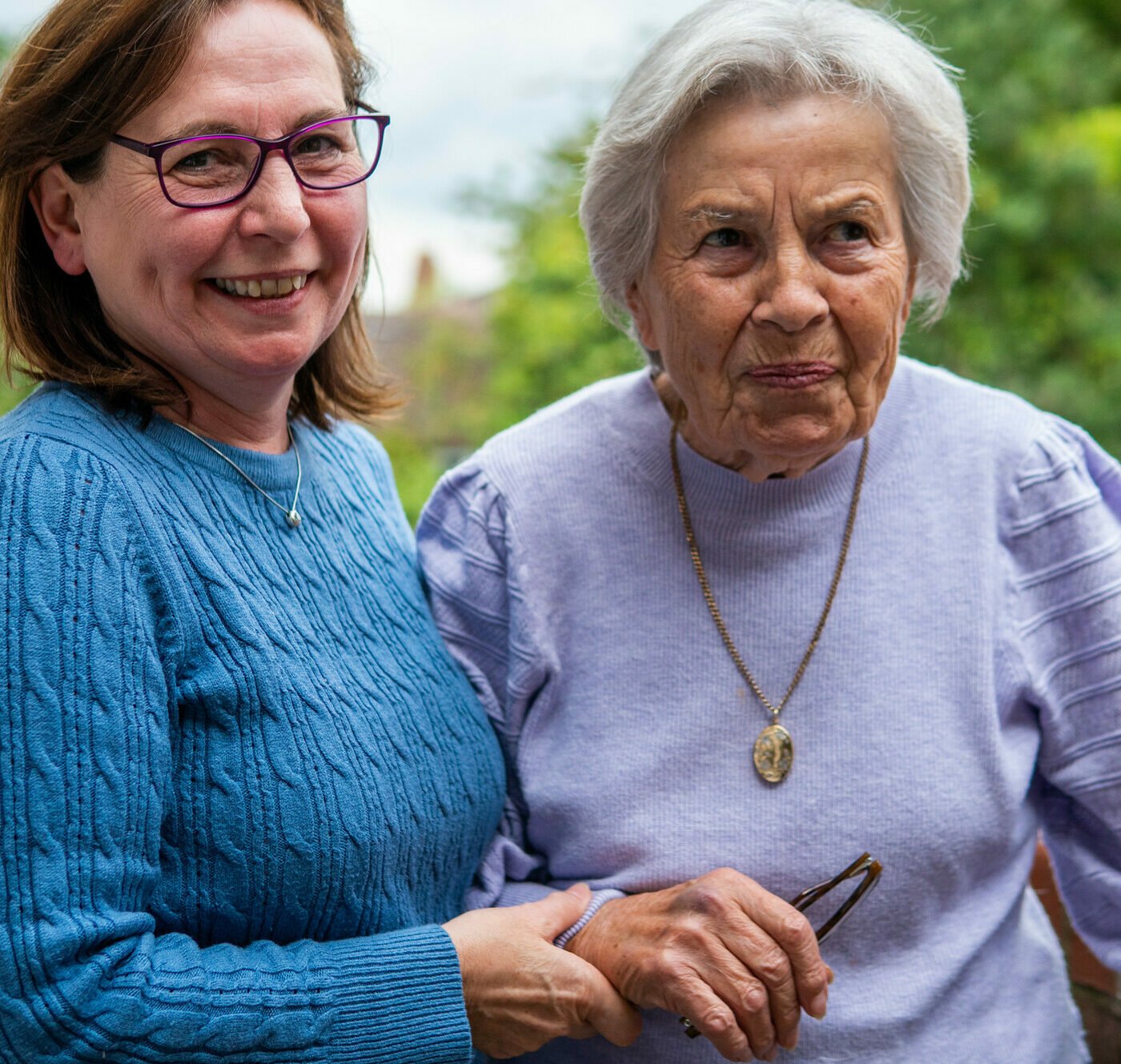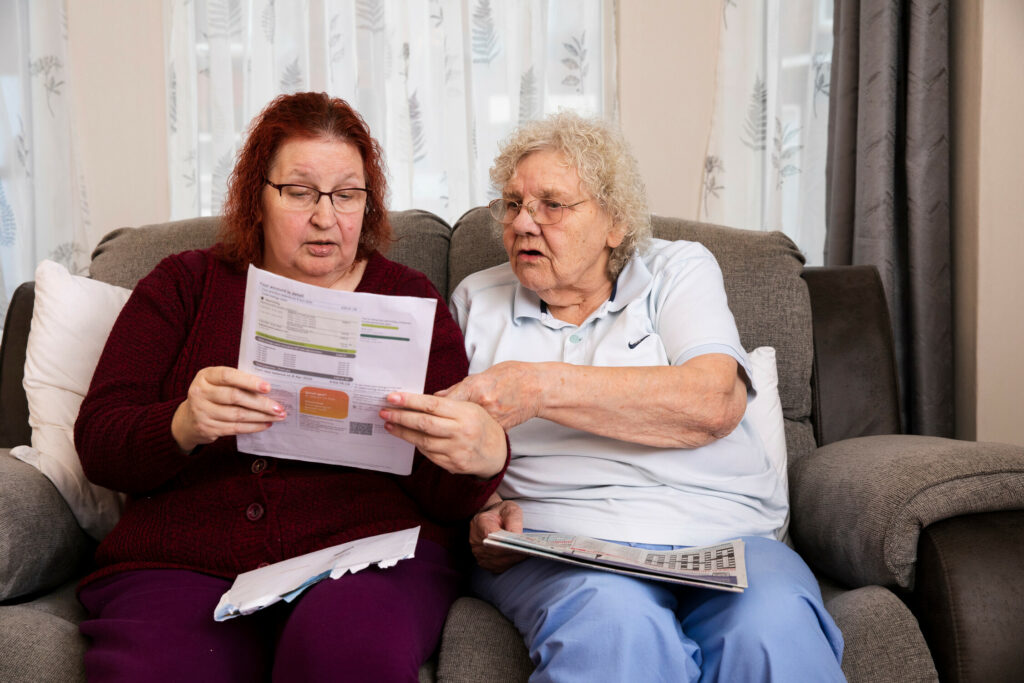Feeling trapped caring for an elderly parent
Tags
Elderly Care
No matter how much you love a parent, shifting from being their child to their caregiver can be incredibly difficult. It’s common to feel ‘trapped’ – unsure what to do next or where to go for help. In this article we look at why more and more people are finding themselves becoming primary carers for parents, the impact this can have on daily life, and the support that’s available.
Why are so many people becoming caregivers for their parents?
A lot of research has found the number of people caring for an older relative has increased significantly in recent years. One such YouGov survey – ‘Taking Care’, found that one in two adults feel that as their parents age and become frail, they’ll have no choice but to care for them themselves. They also found that one in three believe it is their responsibility to do so, and that there is no one else who can help.
Further research from Carer’s UK shows that this growing trend is unfairly impacting women. 59% of family caregivers are women, and are providing care at a time in life when they would otherwise be working.
There are a number of things that are contributing to this rise in unpaid care, and cost is a significant factor. One in three adults told YouGov that they simply can’t afford care home fees for their parents. And, while a number of state benefits can help ease some of the financial strain, many believe these aren’t enough. For example, Carers Allowance which is available to those who provide 35 hours or more of care a week is the equivalent to just over £2 per hour.
Lack of support from the government and local council is a common concern. Many people believe the options offered to them are limited, either with a lack of available care in their local area, or that they’re pushed towards taking a care home bed which may not be what the family or the parent want.
Societal pressures are also a problem. two-thirds of those surveyed by YouGove believe that it’s a daughter’s job to care for elderly parents, rather than a son’s. This can put extra pressure on female carers who are more likely to be ‘sandwich carers‘ – bringing up children alongside their caring responsibilities. This leaves little time for self-care, and can contribute to burnout.
And finally avoiding the problem altogether can make it significantly harder too In Great Britain two out of three over 70s admitted to YouGov that they haven’t told their families how they’d like to be cared for. Care can be a difficult conversation – we found similar results in our own study in 2023, where Just 27% percent of older people told us they’d had an honest conversation about it with their families. Without a clear care plan, families may be more likely to take on the responsibilities themselves when problems arise.

What causes people to feel trapped by their caring responsibilities?
Losing their career
Our jobs are an important outlet for us to think creatively, and help us to sustain a sense of achievement and purpose. However Carer’s UK estimate that around 600 people leave work to care for a loved one each day. This also puts extra financial strain on families, with one less income coming in to the household.
Losing their sense of independence
Having free time to see friends, enjoy hobbies and take holidays when we want is hugely important to quality of life. However, those caring for their parents often end up sacrificing their personal life and the freedom to do things they enjoy – often feeling ‘on call’ to their loved one.
Sense of loneliness
Carers UK say that unpaid carers are seven times more likely to experience loneliness than the general population. Becoming a carer can be an isolating experience – carers often end up sacrificing quality time with friends, and it can feel like no one understands their situation. Spending the majority of your time with the person you’re caring for can also bring up negative feelings towards them, which can exacerbate feelings of loneliness too.
Caregiver burnout
Burnout is a mental and physical exhaustion which happens when you can no longer keep up with the stressors and demands you’re facing. Providing long-term care makes it difficult to manage your time and energy, especially if the person you’re caring for isn’t getting better, or if you became their primary caregiver unexpectedly with very little help. Burnout can be dangerous because it can impact how your feel towards and care for someone, as well as your ability to respond correctly to emergency situations.
Poor mental health
Caring for someone who should be caring for you is a big mental shift, and can put you under a lot of emotional strain. Over time the demands of caregiving may also lead to anxiety, depression and guilt which can cause people to feel hopeless about their situation, and unable to see a future where they’re life will improve.
Poor physical health
Becoming a carer may leave little time of exercise or impact the amount of quality sleep you get, which can have a big impact on your overall health. Time pressure and carer fatigue may also mean you find it difficult to cook balanced meals, and rely more heavily on unhealthy convenience foods.

Looking after yourself if you're feeling trapped
Taking breaks
One important way to combat feelings of entrapment is to take as many breaks as you can, although this is often easier said than done.
Allowing yourself at least 30 minutes to an hour a day where you can switch off from thinking about your parent’s needs or do something you enjoy can help reduce the risk of becoming burnt out. There are a few different ways you can arrange this depending on your family and financial situations.
Some charities like the St Vincent De Paul Society offer free befriending services, where volunteers are matched with older people to visit and provide support on a regular basis. Volunteers help with anything from offering friendship, helping with transport, organising social events, meal preparation, and supporting with light cleaning and errands.
Reengage is a charity that offers monthly tea parties for people over 75. One Sunday a month volunteers collect older people from their homes for an afternoon of tea, cake and conversation. This can be a great group to join if your parent requires companionship care. However attendees need to be able to manage their own personal needs, such as using the bathroom without assistance.
Age UK day centres can also provide a few hours of respite to family carers. They aim to improve older people’s quality of life by offering them the opportunity to socialise with others and take part in activities such as arts and crafts, quizzes and exercise. Day centres also offer a cooked meal, and can help with a low level of care, such as helping with medication. While they’re not free, they’re often a more affordable option for people who just need a few hours of supervision and have lower care requirements.
Respite care services
If your parent has more complex care needs you’ll likely need to look into more skilled support so that you can take longer regular breaks away from your parent’s home, without worry.
Hourly care may be a good care option. You can arrange for a professional carer to visit your loved one in their home for an hour or more at a time, as many times a week as you’d like. Costs can be from £16 to £30 an hour depending on your parent’s care needs.
Hourly care can be especially important if there are certain tasks you feel unable to take on. For example, our research found that 38% of people worry about caring for a parent because they’d find personal care tasks such as helping them with washing or toileting uncomfortable, so you may wish for a professional caregiver to visit a couple of hours a day to help out in these areas.
If you’re looking for a few days or weeks of temporary relief throughout the year, a live-in carer may be more suitable. While live-in care services are a more expensive option, you’ll get the piece of mind that a skilled carer is with your loved one 24/7 as they’ll move into their home while you’re away. It provides family carers with a clean break from their responsibilities so they can fully rest and recharge. Elder provides temporary live-in care services for a minimum of three days – which is the lowest minimum in the industry.
Share the responsibility
Caring often falls unfairly on one or two members of the family due to time and work commitments, or if other family members live far away. However sharing the challenges of caregiving with the entire family is possible even with these other commitments.
Asking siblings, cousins or grandchildren to pop in and provide half and hour of company can make a big difference and allow you to get on with other things. Family members who aren’t local can help in other ways such as doing a weekly online shop or helping with administrative tasks like money management. They can also help by –
- Staying in regular contact with you – having someone to listen to you can help you feel less alone, and open up avenues where others can help from a distance
- Arrange visits around times when you’d like a break, so that they can keep your parent company
- Become a contact linked to any personal alarms or video doorbells, so they can be notified if something happens and raise the alarm
Where to seek help
There are a number of organisations to contact if you’re feeling trapped by caring –
The Samaritans – if you’re feeling low and need someone to talk to
Age UK – for advice and local support services
The Carers Trust – for expert resources for caregivers and local support services
Turn2Us – for help with the any financial burden you may experience during your caregiving journey
Your local council – They can provide benefits for carers such as Carer’s Allowance, and do a carers assessment to identify if you’re eligible for additional support such as specialist training and equipment, or counselling.
Your GP – letting your GP know about your caring responsibilities may help you access things like flexible appointments, mental health support, and referrals to local carer support groups and services.
Sources –
https://taking.care/blogs/resources-advice/trapped-caring-for-elderly-parents-uk
https://www.carersuk.org/news/10-facts-about-loneliness-and-caring-in-the-uk-for-loneliness-awareness-week/
- https://www.actionforcarers.org.uk/how-we-help/practical-support/register-as-a-carer-with-your-gp/
- https://www.ageuk.org.uk/services/in-your-area/day-centres/
https://www.psychologies.co.uk/how-to-care-for-yourself-when-caring-for-an-elderly-parent/
Read more advice

Informal carers – building a contingency plan
If you’re looking after a loved one, creating a contingency plan – outlining who can take over their care, where their medication is stored, and

What if my elderly parents or relatives refuse care?
Elderly Care: What if Elderly Parents Refuse Care? Growing older and less able to maintain an independent lifestyle can be hard for an older person

What are dementia cafes?
Whatever form of dementia someone may have, it can significantly impact both individuals living with the disease and their caregivers. This guide to Dementia cafes

Could you benefit from befriending services?
What is a befriending service? Various organisations across the UK offer ‘befriending’ services to the elderly, isolated, or people living with health conditions that can

Home help for the elderly
It’s natural to need a little help with things as we age. However, if you or a loved one is finding daily tasks more difficult,

Caring for elderly parents with dementia – caregiver tips
How to Care for Elderly Parents: Caregiver Tips Caring for elderly parents is a role reversal that few people find particularly easy. For those of